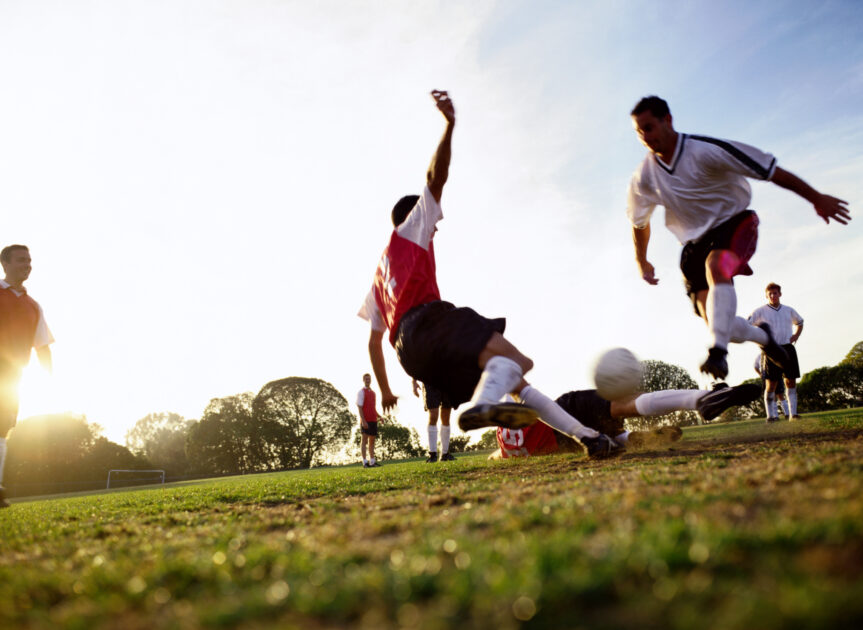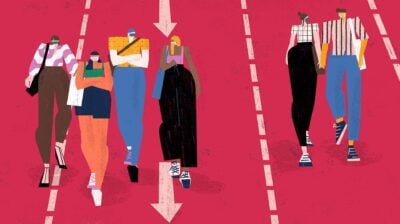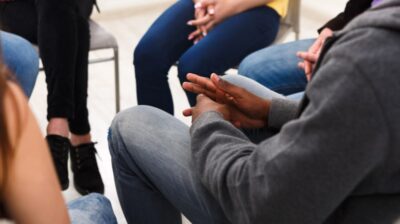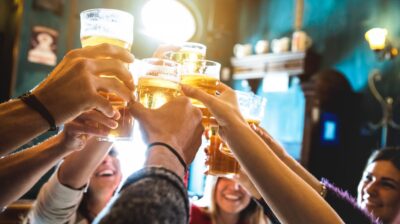Can I exercise after a night drinking?
Drinking can significantly impact your sports performance

If someone exercises the morning after a heavy night of drinking alcohol, it will have an effect on their concentration and coordination, not to mention the likelihood of a headache. Whether you want to hit the gym or you have a match to play, there’s a lot to be said for staying off the drink before you exercise.
How does alcohol impact on fitness?
There are a whole host of ways that alcohol can affect your athletic performance. Being aware of these may help you to plan better, and to start avoiding heavy nights out the day before you are planning to exercise.
Alcohol dehydrates you
It’s important to stay hydrated when you exercise. The body needs water to maintain the flow of blood throughout the body, keep your joints lubricated, and to provide you with the nutrients and vitamins that give you energy.
Alcohol is a natural diuretic, which basically means that when you drink, you pee more often. This causes you to become dehydrated, which is why you might find you wake up the morning after drinking with a dry mouth.
What happens when you become dehydrated?
Dehydration reduces the electrolytes in your body. Electrolytes like magnesium, potassium, and calcium are important for muscle action and coordination and fluid balance. After a night of drinking, you don’t have as much of these important electrolytes in your system to help with your exercise.
When you are dehydrated, you also lose water-soluble vitamins like Vitamins B6, B12, and Vitamin C. This means you’re more likely to feel run down and prone to illness, which could hamper recovery time and keep you from performing at your best.
Why is dehydration bad for exercise?
When you exercise, you become even more dehydrated as your body temperature heats up and we start to sweat. After you’ve been drinking, you’re already dehydrated, and exercising can actually make it worse. This can all lead to feelings of dizziness or light-headedness, nausea, muscle cramps, and a rapid heartbeat.
How does alcohol impact our energy levels?
In order to perform your best when you exercise, you need to have enough energy. Exercise is fuelled by glucose released from the liver into the body’s blood stream. This essential blood sugar is what keeps you going. When you drink, the liver isn’t able to produce glucose like it normally does, meaning you’ll have less energy.
The body also needs something called adenosine triphosphate (ATP) as a source of energy to muscle cells. The more your muscles move while you exercise, the more ATP is needed. When you drink alcohol, the body produces less ATP.
Alcohol slows your reactions
Especially if you play a team sport, reaction times can be crucial to your performance in the game. If you play after you’ve been drinking, you may find yourself letting your teammates down because your reaction time, balance, and hand-eye coordination are all thrown off. This is because alcohol is a sedative, so it slows you down and knocks your concentration.
Drop in cardio performance
Cardio exercise requires the body to pump oxygenated blood to the heart, which in turn delivers oxygen to the muscles, keeping you moving throughout your workout. Alcohol slows this process down, meaning we can’t give our best performance. Combined with low energy levels because of low blood sugar, you can’t be on top of your game after a night of drinking.
We’re more likely to cramp after we’ve been drinking
If you drink alcohol within a 24 hour period before exercising, you’re at a higher risk of cramping and muscle fatigue because of a build-up of lactic acid. This can be painful and frustrating, especially if you’re taking part in a match or trying to hit a personal best.
Complications from injuries
There are a number of ways alcohol can cause complications from injuries by slowing down healing time and masking pain. This won’t just affect your training the next day but could impact on your exercise routine for a few weeks while you try to recover.
You can often be less aware of an injury after you’ve been drinking because of alcohol’s ability to mask pain. If you don’t notice it straight away, you could potentially cause further damage.
Slowing down healing time
Alcohol increases the blood flow in your system, so if you get a soft tissue injury such as a bruise, cut, or sprain, the blood will swell around the injury, slowing down healing time. Alcohol also reduces testosterone, which is needed for muscle development. With lower levels of testosterone in your system, the time needed for repair and recovery will be longer.
Alcohol affects our quality of sleep
Sleep is necessary to our performance when we exercise because it helps to repair and rebuild muscle.
Alcohol reduces the amount of time you spend in REM (rapid eye movement) when you sleep. This stage in the sleep cycle is important because it’s the most restorative. Without it, you’ll be feeling pretty groggy the next day.
While you sleep, the body produces something called Human Growth Hormone (HGH), which helps to build and repair muscle, essential for exercise. If your sleep has been impacted after you’ve been drinking, the production of HGH will also be impacted.
To learn more about the different ways alcohol impacts our bodies, visit AskAboutAlcohol.ie






